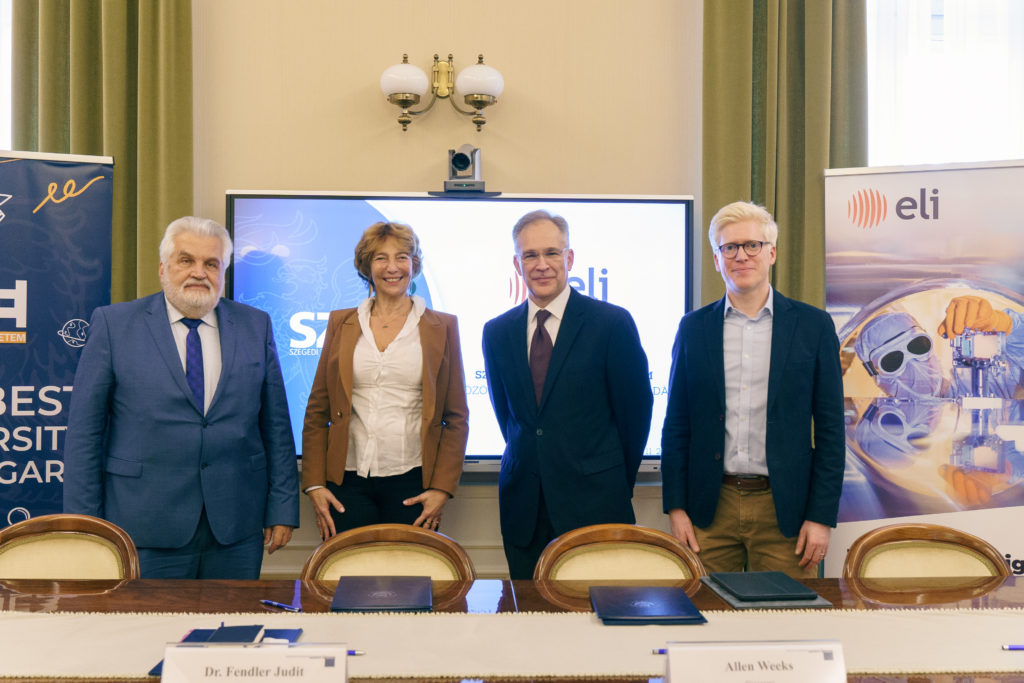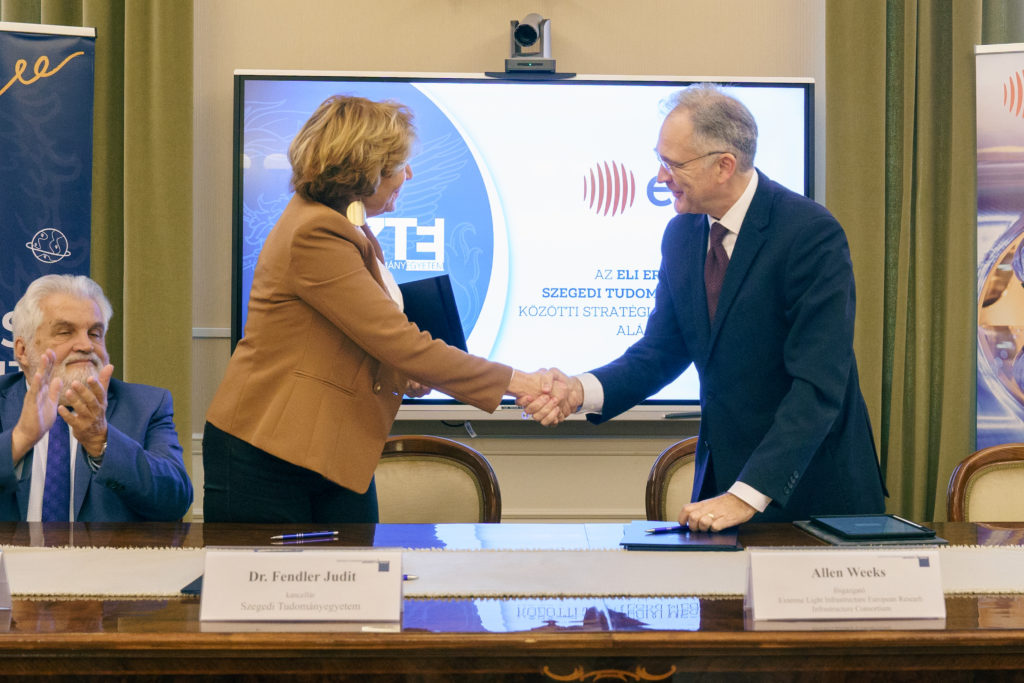
Strategic Agreement with University of Szeged Integrates ELI ALPS Facility into ELI ERIC
The Extreme Light Infrastructure (ELI ERIC) signed an agreement with the University of Szeged to become the majority shareholder in ELI ALPS. The strategic agreement effectively integrates the Hungarian-based research facility under the unified governance of ELI ERIC achieving the original vision for ELI.
On Thursday, 23 November 2023, ELI ERIC signed an agreement with the University of Szeged to aquire a controlling stake in ELI-HU Nonprofit Kft., the legal entity of ELI ALPS, previously owned by the University of Szeged and Szeged Municipality. The agreement provides a framework for ELI ERIC to take over the responsibility for the long-term operation and financing of ELI ALPS.
The integration realises the original vision for ELI ERIC to jointly operate the two research facilities ELI ALPS and ELI Beamlines under a unified governance and single management structure, as laid out in the ELI White Book published 12 years ago.

From left to right: Prof. Gábor Szabó, Dr. Judit Fendler, Allen Weeks, Florian Gliksohn
The ELI ERIC is a consortium established under European law with Member Countries Hungary and Czech Republic, Italy, Lithuania, Germany (observer), and Bulgaria (observer). The move also opens the door for other countries to join ELI ERIC, expanding the scientific community and contributing financially to the operation and development of the ELI Facilities.
“This integration realises the core mission of bringing the ELI ERIC Facilities together as an integrated organisation and operating them as a world-class research infrastructure,” says Allen Weeks, ELI ERIC Director General. “Together ELI ERIC will host the world’s largest and most advanced collection of high-power lasers and provide high-quality access to a broad user community.”
ELI ALPS is a world-leading research facility, hosting lasers capable of generating ultra-short pulses and pushing the boundaries in the field of Attosecond Science. The facility’s relevance is underscored by the 2023 Nobel Prize for Physics awarded to Ferenc Krausz and Anne L’Huillier for their contributions to „experimental methods that generate attosecond pulses of light for the study of electron dynamics in matter” — a technology which is integral to ELI ALPS. Both Nobel Laureates were also actively involved in the development of ELI ALPS.
“We are very proud of what we have achieved with the construction of ELI ALPS and the recognition of the field by this year’s Nobel Prize,” remarked Prof. Gábor Szabó, ELI ALPS Managing Director. “The integration represents a new chapter for our facility and its global impact. We will strengthen our capabilities, broaden our scientific reach, and ensure the sustained operation and development of ELI ALPS for the future.”

This agreement signifies ELI ERIC’s assumption of responsibility for operating and funding the ELI ALPS facility going forward. It stands as a testament to the successful completion of the EUR 300 million project to construct the facility, which was stewarded by the University of Szeged and carried out by the ELI-HU Kft. management and staff.
“The University of Szeged is pleased to be a key player in this strategic alliance that will undoubtedly shape the future of high-power laser research,” noted Dr. Judit Fendler, Chancellor of the University of Szeged. “This partnership solidifies our commitment to fostering groundbreaking research and innovation, further establishing Szeged as a hub for scientific excellence.”
The integration of ELI ALPS into ELI ERIC, follows a year after the incorporation of ELI Beamlines and marks a critical milestone set in the ELI ERIC Statutes, promising a smooth transition and potent commencement of joint operations. This landmark integration solidifies ELI ERIC’s position at the forefront of cutting-edge science, set to realise groundbreaking discoveries and foster international scientific cooperation.
Beyond the corporate legal framework, the University of Szeged and ELI ERIC will continue to be strategic partners, implementing research and educational programmes jointly with the ELI ALPS research institute.